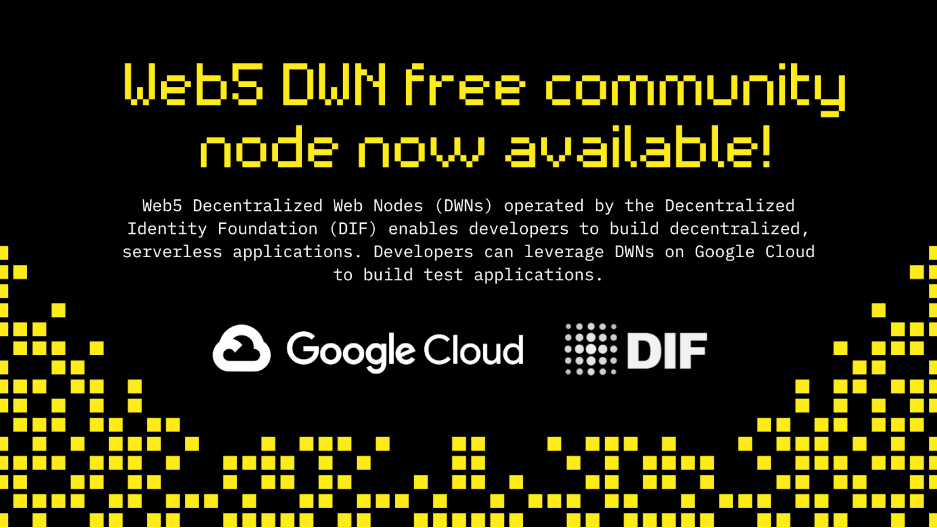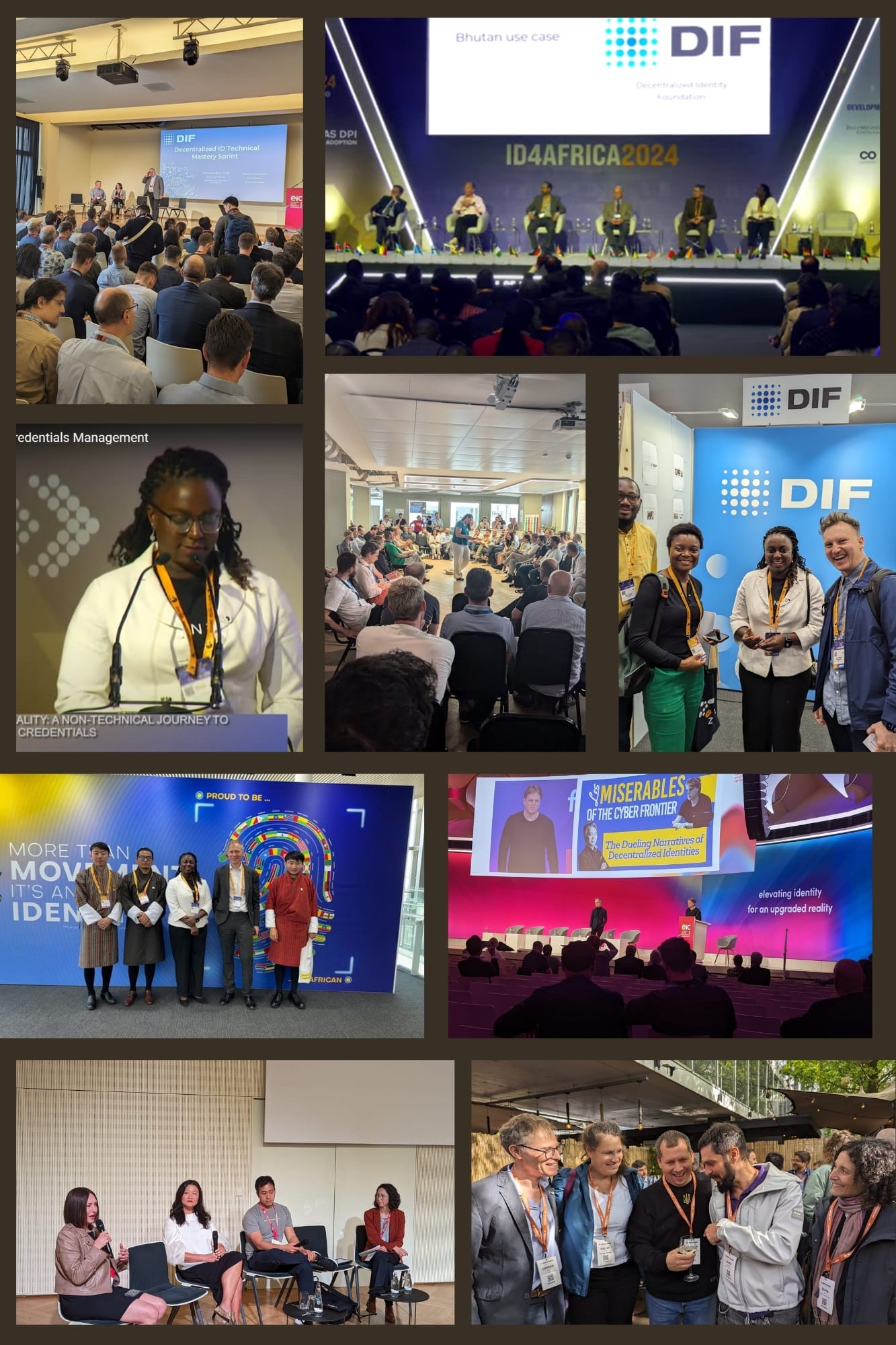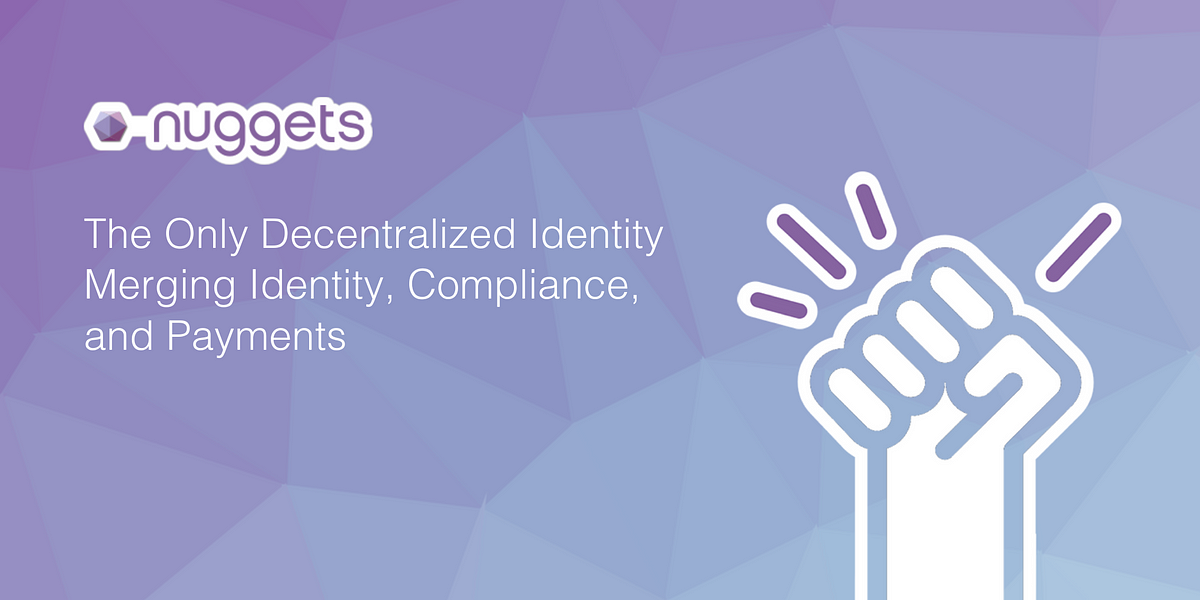July 2024
DIF Website | DIF Mailing Lists | Meeting Recording Archive
Table of contents
- Decentralized Identity Foundation News; 2. Working Group Updates; 3. Open Groups; 4. Announcements at DIF; 5. Community Events; 6. DIF Members; 7. Get involved! Join DIF
🚀 Decentralized Identity Foundation News
DIF Hackathon

Join Us this fall for a Transformative Hackathon Experience!
The Decentralized Identity Foundation (DIF) is thrilled to announce a groundbreaking hackathon in October 2024, coinciding with Hacktoberfest. This event will focus on harnessing the power of decentralized identity across key sectors: Education, Reusable Identity, and Travel.
Who should participate?
We invite experienced developers and product managers to participate in two entry styles:
- Applications with Code Provided
- Idea Submissions (including engineering approaches and components used)
Why Sponsor?
This is a unique opportunity for companies to pioneer challenges, attract top-tier talent, and deepen their grasp of how Decentralized Identity (DI) can revolutionize identity solutions. Sponsors will have the chance to showcase their products and SDKs through educational sessions promoted by DIF, amplifying visibility and engagement within the developer community.
Technical Requirements
While challenges are not obligated to use DIF work items, they must incorporate Decentralized Identifiers (DIDs) and Verifiable Credentials (VCs) adhering to open standards at the W3C.
Hacking Period: October 1st - November 3rd 2024
For more details and to express your interest, please contact Limari Navarrete, DIF’s Sr. Director of Community Engagement, at limari@identity.foundation. Join us in driving the future of decentralized identity!
DWN Community Node

DIF has launched a Decentralized Web Node (DWN) Community Instance, operated by DIF and powered by Google Cloud.
Decentralized Web Nodes (DWNs - also referred to as DWeb Nodes) are personal data stores that eliminate the need for individuals to trust apps to responsibly use and protect their data. Instead, data is owned and controlled by the individual — offering developers a brand new way to create apps that request individuals’ permission to read and access their data, but don’t store it.
The Managed DWN service or “community node” will allow existing and new Google Cloud customers to more easily build test applications using DWNs. Rather than having to run their own DWN or server infrastructure to store data, developers will be able to leverage a DWN on Google Cloud to build test applications.
Developers can use the community DWN node at no cost, including up to 1GB of storage per DID.
To read the report from the launch event on 18 July, click here.
To start building decentralized apps on Web5, developers can visit developers.tbd.website.
To access the DIF community node, start here.
Orgs join forces to advocate for inclusion of DIDs in the ARF

Photo by Guillaume Périgois on Unsplash
Leading experts collaborated to advocate for Decentralized Identifiers (DIDs) in the EU Digital Identity Wallet Architecture and Reference Framework (ARF).
The rationale, detailed in a paper published on Github, includes improved privacy and empowerment for individuals, broad existing implementations and support and interoperability and future proofing of the ARF. The paper also addresses a number of misconceptions about DIDs.
The intervention comes around the second anniversary of DIDs becoming an official web standard, after the specification was adopted as a W3C recommendation.
"Getting one organization to agree on something is hard. And getting multiple orgs to agree? If the reason is important enough, you find a way. Empowering individuals with digital identities they control is one of them," said DIF's Executive Director, Kim Hamilton Duffy.
"I'm grateful to Decentralized Identity Foundation, Digital Credentials Consortium, Trust Over IP Foundation for their leadership, and to the numerous community members (from W3C and beyond) for pulling this together in a very tight timeframe -- over a holiday weekend, in fact", she added.
Check out our github issue -- please upvote if you support DIDs!
DIF releases Credential Trust Establishment white paper

DIF's Credential Trust Establishment Working Group released a new white paper titled "Decentralizing Trust in Identity Systems", describing how to achieve scaleable trust relationships in decentralized identity networks.
The problem of trust in a decentralized identity ecosystem comes down to the simple question of whether a credential verifier should trust the issuer of a credential. This problem becomes increasingly complex as networks expand to include many credential issuers and delegated trust relationships.
The paper explores different trust network architectures, comparing risks, benefits, and tradeoffs. It highlights the advantages of the Credential Trust Establishment Specification, offering practical recommendations for developing and managing of trust networks.
Check out the annoucement here and read the white paper here.
🛠️ Working Group Updates
💡Identifiers and Discovery Work Group
The Linked Verifiable Presentation (VP) work item is completed now the spec has been ratified by the Steering Committee. "It's a really nice spec, simple and useful. JC did a great job managing it and promoting it to the right people at conferences. All in all a very successful work item!" said co-chair Markus Sabadello.
A potential new work item, DID Traits, was presented by the group's new co-chair, JC Ebersbach at DICE, generating interest from the Trust over IP Foundation (ToIP) and Open Wallet Foundation (OWF) among others. "The idea is to establish a list of traits and map these to DID methods, in order to provide a first assessment of how DID methods are different and help implementers decide which DID method(s) to use." JC said.
Several updates have been applied to the Universal Resolver, related to support for did:key and did:kscirc (a Korean DID method).
Identifiers and Discovery meets bi-weekly at 11am PT/ 2pmET/ 8pm CET Mondays
🔐 Applied Crypto WG
The BBS Signature Scheme is continuing to move forward, with further great progress this month.
The draft specifications for Blind BBS Signatures and BBS Pseudonyms have been updated and lodged with the Internet Engineering Task Force (IETF), following the submission of Draft 6 of the overall specification at the end of last month.
Blind signatures are digital signatures over messages not known to the Signer. A pseudonym is a value that will remain constant each time a Prover presents a BBS proof to the same Verifier, but will be different (and unlinkable), when the Prover interacts with a different Verifier. This provides a way for a recipient (Verifier) to track the presentations intended for them, while also hindering them from tracking the Prover's interactions with other Verifiers.
The DIF Crypto - BBS work item meets weekly at 11am PT/2pm ET /8pm CET Mondays
📦 Secure Data Storage
This month, the Decentralized Web Node (DWN) Task Force is excited to announce a partnership with Google and TBD to support community decentralized web node hosting (see DIF News, above). This marks a significant milestone in the development of personal data stores. On the WG activity front, lively discussions about versioning have been ongoing, primarily focusing on semantic consistency and timing considerations. The DWN WG has also been exploring ways to enhance adoption and onboarding tools for the Decentralized Web. These discussions include ideas such as a "block explorer" for protocol discovery and thin client support to reduce computational overhead for specific operations.
DIF/CCG Secure Data Storage WG - DWN Task Force meets bi-weekly at 9am PT/12pm ET/6pm CET Wednesdays
Claims & Credentials Working Group
The Credential Schemas group, led by co-chairs Otto Mora and Jim Schoening, has been compiling a unified glossary (based on the IEEE ontologies) of common terms intended to form the basis for a KYC Personal Data Model. Over 20 sources have been assessed, including Google and Meta Takeout Data, the HL7 and FHIR health data standards, OIDC Core data model, ISO mDOC and ISO 18013-5 (mDL). This will help further progress on this initial KYC schema, with more schemas to follow later including AML, Proof of Humanity, and Proof of Age.
If you are interested in participating in any of the Working Groups highlighted above, or any of DIF's other Working Groups, please click here.
📖 Open Groups at DIF
Veramo User Group
The next release of Veramo will include an update to the credential plugin system, making it easy to extend with new proof formats. Currently, adding a new proof format requires an upstream change to Veramo, but after this release such plugins can be developed entirely independently.
Other recent updates include some compatibility fixes, pruning some of the dependencies that were causing issues in react-native environments.
Meetings take place weekly on Thursdays, alternating between Noon EST / 18.00 CET and 09.00 EST / 15.00 CET. Click here for more details
🌏 APAC/ASEAN Discussion Group
Check out Accredify's recent presentation, and previous presentations to the discussion group here.
We invite everyone in the APAC region to join our monthly calls and contribute to the discussion. You will be able to find the minutes of the latest meeting here.
The DIF APAC call takes place Monthly on the 4th Thursday of the month. Please see the DIF calendar for updated timing.
🌍 DIF Africa
The DIF Africa discussion group is in the process of converting to a Special Interest Group, see Announcements for more details.
📢 Announcements at DIF
Extremian Hackalong

We’re excited to announce the first ever DIF HackAlong, co-produced with DIF Associate member Extrimian!
These HackAlongs are dynamic educational sessions designed to equip both developers and business leaders with essential knowledge about decentralized identity.
Join us for the first of it’s kind, beginner friendly Spanish-language event. The series will consist of five one-hour sessions, starting on Thursday, August 8, and running through September 12.
From the organizers: "We will analyze a use case based on the Travel and Hospitality industry, and show you how the QuarkID protocol works. If you’re a fan of technology, a web3 enthusiast, developer, a decision-maker, or an IT student, don’t miss out on talks about decentralized, innovative technologies focusing on data security and privacy. Plus, create and develop your project using SSI.
"By participating, you could be featured in the DIF’s project gallery and win many other prizes for participants! If you’re in Buenos Aires, Argentina, you can join us in person at the Innovation Park, where our team will be broadcasting the workshops!"
Want to participate? Visit the Extrimian/DIF event page to learn more and secure your spot today: https://extrimian.io/es/courses/extrimian-y-dif/
DIF Africa SIG

Photo by Bethel Ofuyatan on Unsplash
A new Africa Special Interest Group (SIG) is set to be launched.
The Africa SIG will be co-chaired by Lohan Spies, CEO and founder of DIDx, who previously co-hosted the DIF-Africa call, and Jack Scott-King, co-founder of VERA.
The Africa SIG aims to have a launch meeting during DID:UnConf Africa, which is taking place in Cape Town from 25 to 27 September (see Community Events for details), subject to Steering Committee approval of the group's charter.
The news follows the ID4Africa AGM in Cape Town in May, where strong interest in DIF was evident and many new connections were formed.
If you are interested in participating in the Africa SIG, please contact Lohan or Jack on Slack or email.
ID Day

As a coalition partner of ID4Africa, DIF urges our members to celebrate The Right To Be Visible on ID Day, 16th September 2024.
Having proof of one’s identity is a fundamental human right, and a practical necessity, especially in the context of this modern digital age. Very few social constructs play as foundational a role in our lives as personal identity, yet the world does not commemorate it. Through a dedicated commemorative day, we hope to promote a responsible narrative about the most important human asset – our legal identity.
ID Day sensitizes us to the plight of those who lack proof of identity (estimated at 850 million, with about half in Africa) and reaffirms our commitment to achieving total inclusion, so that no one is left behind.
The choice of the date 16 September (16.9) is highly symbolic. It is in commemoration of the UN Sustainable Development Goal 16.9 which calls for the provision of legal identity for all by 2030, including birth registration.
Check out the ID Day website for ideas for ways to celebrate ID Day, and plenty of resources to help you do so.
🗓️ ️Community Events
DID:Unconf Africa

The Hasso Plattner School of Design Thinking
DID:UNCONF AFRICA, an Internet Identity Workshop Inspired™ Regionally Focused OpenSpace, is taking place for the first time in the fall.
The event, which takes place at the Hasso Plattner School of Design Thinking Afrika in Cape Town from 25 to 27 September, aims to broaden participation in the Decentralized Identity / SSI space, facilitate local and international exchange, promote SSI and digital identity, foster inclusive innovation and empower digital identity startups.
"Our primary aim is to provide a place and time for local innovators, entrepreneurs, and thought leaders to actively engage in discussions and collaborations with international experts.
"Our vision is to attract a diverse audience from the South African Development Community (SADC) region and beyond. We see DID:UNCONF AFRICA as a bridge connecting local and international participants, enriching the global discourse on digital identity.
"We hope to create a thriving ecosystem where SSI can flourish, addressing pressing identity issues and empowering individuals across Africa, and are dedicated to breaking down barriers that may have limited participation in tech events, particularly by underrepresented groups such as women and marginalised communities," the event's conveners state.
DID:UNCONF AFRICA will provide a platform for startups to showcase their solutions, connect with potential investors and partners, and gain valuable insights from industry experts. The event will address important topics to be discussed in the SADC region, including
- Assessing Readiness for Digital Identity at Scale in Africa
- Protective Identity Systems Against Surveillance
- Economically Sustainable Digital ID Models for Citizen Services
- Decentralized Identity & IoT in Africa
- Global Digital Identity Standards in the African Context
- Financial Inclusion Through Digital Identity
- Low & No Data Solutions: Leaving No-One Behind in Digital Identity
- Innovative Solutions for African Use-Cases
Click here for more information and here to register.
Internet Identity Workshop (IIW) #39

The Fall IIW is taking place in Mountain View, California from 29 - 31 October. Book your ticket here.
IEEE Intelligent Systems ’24

DIF member Ivan Lambov is chairing a session on "Beyond the hype: exploring the real-world impact of Blockchain" at the IEEE 12th International Conference on Intelligent Systems, which takes place in Varna, Bulgaria from 29 - 31 August.
Check out the agenda and register here.
Conference Spring Season wrap-up
Some memories and highlights from Spring conference season:

🗓️ ️DIF Members
Guest blog - Daniel Buchner

Daniel Buchner is Head of Decentralized Identity at TBD. He has been continuously involved with DIF since he helped establish the foundation in 2016, co-chairs the DWN work item within the Secure Storage working group, and helped establish the DWN Community Node, announced this month. He also serves on DIF's Steering Committee.
We caught up with Daniel to hear why DWNs are proving a hit with developers, and his thoughts on the state of Decentralized Identity. Check it out here.
Guest blog - Steve McCown

Anonyome Labs was founded in 2014 to give people control and freedom over their personal and private information. Based in California, Utah and Australia, the company has deep expertise in security, identity management, authentication and authorization, cloud, privacy, and cryptography, and equips businesses with cutting-edge privacy and cybersecurity solutions that seamlessly integrate with existing offerings and systems.
Anonyome Labs Chief Architect and DIF Steering Committee member, Steve McCown, talked to us about how the company is using Decentralized Identity to drive interoperability and usability of their products, his involvement in DIF, and decentralized identity standards work. Check out the guest blog here.
Nuggets

We are thrilled to announce our new partnership with Carahsoft Technology Corp that will bring Private, Reusable Identity and Passwordless Solutions to Government Agencies across the US - we're already across 11 US federal contracts.
There are two significant obstacles Government agencies face with regards to data integrity: one, the increasing cost and challenges associated with data privacy and two, the acceleration of sophisticated scams and rampant fraud. Nuggets solves for both; The company’s fully decentralized wallet and platform protects organizations from data breaches, ransomware and fraud while ensuring digital identities always remain verified, private and secure.
Read the press release here.
New Member Orientations
If you are new to DIF join us for our upcoming new member orientations. Please subscribe to DIF’s eventbrite for upcoming notifications on orientations and events which can be found here.
🆔 Join DIF!
If you would like to get in touch with us or become a member of the DIF community, please visit our website.
Can't get enough of DIF?
| Follow us on Twitter
| Join us on GitHub
| subscribe on YouTube
| read our DIF blog
| read the archives
